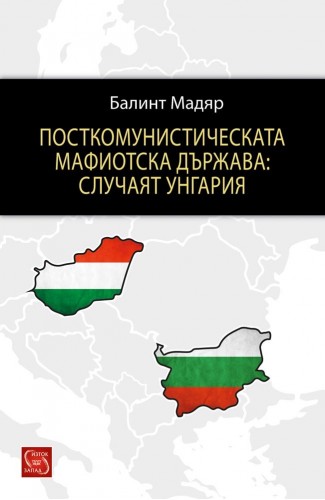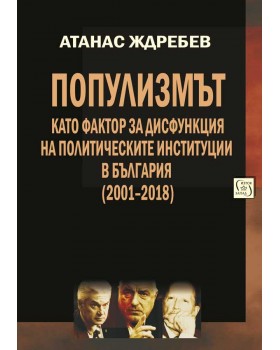Post-Communist Mafia State: The Case of Hungary
-

- Author: Balint Magyar
- Year: 05-12-2016
- Availability: In Stock
- Product Code: 1853-01
- SKU: 16.0175
- ISBN: 978-619-152-965-0
- Read an excerpt:
 |
Delivery To BOX NOW machine - 1,66 € / 3,24 BGN At an office of Econt - 2,05 € / 4,00 BGN At personal address of Econt - 3,07 € / 6,00 BGN |
 |
Order by phone Call us at 0888 465 635 to order by phone |
In an article in 2001 the author analyzed the way the Hungarian political party Fidesz (the Federation of Young Democrats) was eliminating the institutional system of the rule of law as it was on government for the first time. At that time, many readers doubted the legitimacy of the new approach, in which the author characterized the system as the 'organized over-world', the 'state employing mafia methods' and the 'adopted political family'. Critics considered these categories metaphors rather than elements of a coherent conceptual framework. Ten years later Fidesz won a two-third majority in Parliament at the 2010 elections, removing many of the institutional obstacles of exerting power. Just like the party, the state itself was placed under the control of a single individual, who since then has applied the techniques used within his party to enforce submission and obedience onto society as a whole.
It is common in many post-communist systems that a segment of the party and secret service became the elite in possession of not only political power but also of wealth. However, Fidesz, as a late-coming new political predator, was able to occupy this position through a change of elite. The actions of the post-communist mafia state model are closely aligned with the interests of power and wealth concentrated in the hands of a small group of insiders. While the traditional mafia channeled wealth and economic players into its spheres of influence by means of direct coercion, the mafia state does the same by means of parliamentary legislation, legal prosecution, tax authority, police forces and secret service.
The innovative conceptual framework of the book is important and timely not only for Hungary, but also for other post-communist countries subjected to autocratic rules.
About the Author

Balint Magyar
Related Products
Tags: Political Science & Politics, Books About the Transition,
| Specification | |
| Year | 05-12-2016 |
| Translation | From Russian: Vladimir Ignatovsky |
| Pages | 368 |
| Size | 140/215 мм |
| Weight | 0.3 kg |
| Cover Type | Paperback |
| Genre | Political Science & Politics, Books About the Transition, |







